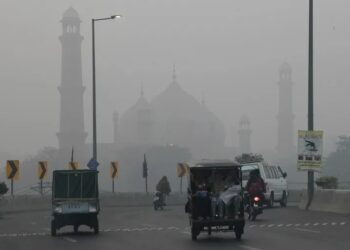Written by: Abdul Basit Alvi
Balochistan, the largest province in Pakistan by area, has always held a significant place in the country’s history, politics, and development. With its strategic position, abundant natural resources, and cultural importance, the province is of immense value to Pakistan.
Located at the crossroads of South Asia, Central Asia, and the Middle East, Balochistan is crucial to Pakistan’s geopolitical landscape. The province shares borders with Iran and Afghanistan, making it a key player in regional affairs. The presence of Gwadar Port, which Pakistan acquired in 2007, further elevates Balochistan’s strategic significance. Situated on the Arabian Sea, Gwadar serves as a vital trade link between Pakistan and the global market. Its development is central to the China-Pakistan Economic Corridor (CPEC), a project poised to reshape the region’s economic future. Additionally, Balochistan’s proximity to the Strait of Hormuz, a major global oil transit route, provides Pakistan with a unique advantage in global energy security. In this regard, the province’s geostrategic importance is pivotal to Pakistan’s security and economic growth.
Balochistan is rich in natural resources, including minerals, gas, coal, and petroleum. The discovery of the Sui gas fields in the 1950s has been a significant contributor to Pakistan’s energy supply. The province also has abundant reserves of copper, gold, and other minerals, offering great potential to fuel the nation’s industrial growth. Recognizing this potential, the central government has called for greater investment in Balochistan, focusing on infrastructure and human capital, to ensure that its natural wealth benefits both the local population and the nation. The government’s focus on energy exploration and infrastructure projects, such as roads and bridges, further emphasizes Balochistan’s importance to Pakistan’s future.
Since the creation of Pakistan in 1947, Balochistan has been an integral part of the country. Historical events reflect Pakistan’s unwavering commitment to the province. After the partition of British India, princely states were given the choice to join either India or Pakistan. Initially, Balochistan, then an independent princely state under the Khan of Kalat, sought autonomy. However, Quaid-e-Azam Muhammad Ali Jinnah, recognizing the strategic and historical significance of Balochistan, worked to integrate the province into Pakistan. On March 27, 1948, after negotiations, the Khan of Kalat agreed to accede to Pakistan, formally incorporating Balochistan into the newly established nation. The central government, under Jinnah’s leadership, reassured the people of Balochistan of their rights and the importance of their province within Pakistan, marking the beginning of its integration.
The development of Balochistan has always been a priority for Pakistan, given its vast potential. In the 1950s and 1960s, the central government launched several projects aimed at modernizing the province, including the construction of roads, schools, hospitals, and other infrastructure to improve living standards. The 1970s, however, marked a significant shift, with the establishment of Gwadar Port further demonstrating Pakistan’s commitment to Balochistan. Acquiring Gwadar from Oman in 1958 and transforming it into a deep-sea port showcased Pakistan’s strategic vision. The port was seen as a crucial trade link, while also contributing to Balochistan’s economic development. In the 1980s and 1990s, the government continued to pursue development projects, including the construction of highways connecting Balochistan with other provinces and neighboring countries. Quetta, the provincial capital, also saw infrastructural advancements, along with efforts to provide electricity and clean water to rural areas. These initiatives reflected Pakistan’s commitment to elevating Balochistan and fostering its integration with the rest of the country. Beyond development, Pakistan has consistently focused on ensuring the security and stability of the province. Despite experiencing occasional insurgencies over the years, which stemmed from local grievances, Pakistan’s military has been crucial in maintaining law and order in the region. Pakistan has consistently reaffirmed its dedication to preserving Balochistan’s territorial integrity and sovereignty. The military’s role in safeguarding the province from foreign-backed insurgencies and promoting internal stability underscores the state’s resolve to keep Balochistan firmly within Pakistan’s fold. In recent years, the government has taken significant steps to address the concerns of the Baloch people, such as launching the Aghaz-e-Huqooq-e-Balochistan package in 2009. This initiative aimed to tackle economic, political, and social issues. While there have been challenges in its implementation, these efforts reflect the state’s willingness to listen to the people of Balochistan and invest in their future.
Currently, Pakistan’s commitment to Balochistan is most evident in the development of the China-Pakistan Economic Corridor (CPEC), which passes through the province. This ambitious project promises to provide jobs, improve infrastructure, and enhance Balochistan’s connectivity with the rest of the world. Through CPEC, Pakistan is ensuring that Balochistan benefits from its strategic location. Additionally, Pakistan’s leadership is increasingly focused on strengthening its relationship with the Baloch people by promoting political dialogue, investing in education, and fostering peace and prosperity. The government recognizes that for Balochistan to thrive, it must be fully integrated into the national framework, where all Pakistanis share a common purpose and collectively benefit from the country’s success.
Balochistan, which occupies a significant portion of Pakistan’s western border and shares boundaries with Iran and Afghanistan, holds a crucial role in regional geopolitics. However, the province has been plagued by insurgencies and terrorist activities, largely fueled by groups like the Baloch Liberation Army (BLA) and other terrorists. These insurgencies and acts of terrorism have resulted in a prolonged conflict, marked by widespread violence, terrorist attacks, and a growing humanitarian crisis. India has been supporting these terrorist organizations, particularly the BLA, in efforts to destabilize the region and undermine Pakistan’s sovereignty. This has heightened tensions between the two neighboring countries, particularly since the 2016 arrest of Indian spy Kulbhushan Jadhav.
Founded in the late 1990s, the BLA is one of the most prominent terrorist groups in Balochistan. Considered a terrorist organization by Pakistan, the BLA uses violent tactics to advance its cause. The group’s ideology is based on the flawed belief that the Baloch people have been politically, economically, and culturally marginalized by both Pakistan and Iran. Baloch nationalists argue that the region’s resources have been exploited without benefiting the local population. The BLA has been responsible for numerous high-profile attacks across Balochistan and Pakistan, employing bombings, ambushes, targeted assassinations, and assaults on military, law enforcement, and civilian infrastructure. These acts of violence have caused significant loss of life and property, further contributing to the region’s instability. One of the BLA’s earliest major attacks involved targeting a Pakistan Navy facility in Karachi, resulting in casualties and damage to vital infrastructure. This incident demonstrated the group’s capacity for large-scale, coordinated operations. The BLA took responsibility for the attack on the Chinese consulate, which occurred amid rising concerns about China’s expanding influence in Pakistan through the China-Pakistan Economic Corridor (CPEC) project. The assault was viewed as an effort to disrupt the relationship between Pakistan and China and undermine the CPEC initiative. In 2019, the BLA launched an attack on a convoy of Pakistan’s Frontier Corps in Balochistan, killing several soldiers and injuring many more. The group persisted in targeting security forces, arguing that they were the main obstacle to their terrorist activities. Recently, the BLA launched an attack on the Jaffer Express, taking innocent passengers hostage. Balochistan is a province of immense strategic, economic, and resource value to Pakistan. It is rich in natural resources, such as natural gas, oil, coal, and minerals. For example, the Sui gas fields in Balochistan have been a major source of natural gas for Pakistan since the 1950s. The province also contains vast deposits of copper and gold, which remain largely untapped due to ongoing instability. Numerous internal and external forces are contributing to the province’s destabilization, which, in turn, affects the entire country.
India has been involved in supporting terrorist movements in Balochistan, including the BLA, in an attempt to destabilize the region and weaken Pakistan. Evidence of India’s involvement has emerged through intelligence reports, intercepted communications, and confessions from detained militants. One of the most significant incidents of alleged Indian involvement occurred in 2016 with the arrest of Kulbhushan Jadhav, an Indian national accused of operating in Balochistan under the guise of a businessman. Jadhav was apprehended by Pakistan’s security forces and was alleged to be working for India’s Research and Analysis Wing (RAW), India’s intelligence agency. Pakistan claimed Jadhav had supported and financed terrorist groups, including the BLA, to conduct acts of terrorism in Balochistan. His arrest and subsequent trial sparked a diplomatic crisis between India and Pakistan. Pakistan presented video evidence in which Jadhav purportedly confessed to espionage and funding terrorist groups. The case of Kulbhushan Jadhav remains one of the most high-profile instances of Pakistan’s claims regarding Indian involvement in Balochistan.
Further evidence of India’s alleged role in supporting terrorism in Balochistan includes the discovery of Indian-made explosives and weapons found with militants linked to the BLA. Pakistani officials have also pointed to the presence of Indian training camps and funding networks, which allegedly support Baloch insurgents. Pakistan’s intelligence agencies have consistently stated that India’s RAW has played an active role in inciting violence in Balochistan as part of a broader strategy to destabilize Pakistan.
India’s strategic motivations for allegedly supporting terrorism in Balochistan are believed to be tied to its long-standing rivalry with Pakistan. Balochistan holds significant geostrategic importance, particularly due to its proximity to the Strait of Hormuz and the growing significance of Gwadar Port. India is especially concerned about the China-Pakistan Economic Corridor (CPEC), which strengthens Pakistan’s economic ties with China, a country with which India has multiple territorial and geopolitical disputes. By allegedly supporting terrorist groups in Balochistan, India seeks to undermine Pakistan’s efforts to develop the region and improve its strategic standing.
The ongoing violence and terrorism in Balochistan have had profound consequences for the region and Pakistan as a whole. Attacks by the BLA and other terrorist groups have caused significant casualties among both security forces and civilians. Infrastructure—particularly related to security, development, and energy—has been targeted, hindering economic growth and social progress in Balochistan. The persistent violence has displaced thousands of people, creating a humanitarian crisis. Many Baloch civilians live in constant fear of attacks, and basic services such as healthcare, education, and electricity remain scarce due to the ongoing instability. The conflict in Balochistan has resulted in substantial internal displacement, with many Baloch people fleeing to other parts of Pakistan or seeking asylum in neighboring countries, including Afghanistan and Iran. The alleged involvement of India in terrorism within Balochistan has escalated tensions between Pakistan and India, further straining the already tense relations between the two nuclear-armed nations. The issue has become a diplomatic flashpoint. In response to the growing terrorism threat in Balochistan, Pakistan has adopted a comprehensive approach, which includes military operations, counter-terrorism measures, and efforts to address the socio-economic grievances of the Baloch people. The Pakistani military has carried out numerous operations aimed at dismantling terrorist groups, apprehending militants, and destroying terrorist hideouts. Alongside military efforts, Pakistan has sought to address the root causes of Balochistan’s instability by initiating development projects, such as infrastructure improvements, investment in education, and better delivery of essential services. Additionally, Pakistan has sought to highlight India’s alleged involvement in supporting terrorism in Balochistan at international forums like the United Nations, urging the global community to take a firm stance against cross-border terrorism.
Akhtar Mengal, the leader of the Balochistan National Party (BNP), is a prominent political figure from the region. His political stance is often seen as critical and anti-state by the Pakistani government. Mengal founded the BNP in 1996, with the party advocating for greater political autonomy for Balochistan and the protection of Baloch rights. The central theme of the party’s platform revolves around the belief that the people of Balochistan have been economically exploited and politically marginalized by the Pakistani state, which has historically treated the province as a resource-rich but politically and culturally sidelined region. Mengal’s rhetoric and political approach are often seen as negative, particularly in his criticism of the Pakistani state. He has consistently accused the state of human rights violations in Balochistan, citing alleged extrajudicial killings, enforced disappearances, and military operations targeting the Baloch nationalist movement. These accusations have contributed to his image as an anti-state figure, and his focus on denouncing the state has often overshadowed efforts toward reconciliation or constructive dialogue.
While Mengal has not explicitly called for an independent Balochistan, his rhetoric often aligns with separatist sentiments. His party’s demands for greater autonomy, control over natural resources, and the protection of Baloch cultural and linguistic identity are often seen as incompatible with the concept of a united Pakistan. Mengal’s emphasis on Baloch nationalism has led to suspicions from the Pakistani state, as such demands are often interpreted as potential steps toward secession, a goal the central government strongly opposes. One of Mengal’s key grievances is his accusation that the Pakistani state is exploiting Balochistan’s natural resources. Although Balochistan is rich in resources such as gas, coal, and minerals, Mengal and others claim that the region has not benefited from the wealth generated by these resources, a narrative that many view as misleading. Mengal’s consistent focus on resource control by the Baloch people has fueled the perception that he is spearheading a campaign against the central government, as this demand directly challenges the federal authority over the province. His party has also faced allegations of having connections with militant Baloch terrorist groups, some of which advocate for violent secession. Mengal’s vocal support for these militant groups and their disruptive agendas has been viewed by many as an indirect endorsement of terrorist activities. Mengal’s association with militant nationalism has fueled further accusations that he is promoting an anti-state agenda. From the perspective of the Pakistani government, his political actions are seen as a challenge to the state, particularly with his constant calls for autonomy and his false claims of state oppression. His rhetoric is often viewed as escalating the conflict, especially when he raises unsubstantiated allegations of human rights abuses by the government. The Baloch insurgency, which includes armed terrorist groups, has posed a significant threat to Pakistan’s national security, and Mengal’s advocacy for Baloch rights is seen by many as contributing to the region’s instability. The political discourse pushed by Mengal also threatens the unity of Pakistan, as his emphasis on ethnic identity and autonomy undermines the idea of a cohesive Pakistani state. The Pakistani government, along with the people of Pakistan, Balochistan, and various political groups, sees his calls for autonomy and resource control as divisive, particularly in a country where ethnic tensions have historically caused instability.
As a federation of provinces with considerable ethnic diversity, Pakistan is built on the concept of a strong central government, and Mengal’s calls for restructuring federal structures challenge this foundation. This has led to the perception that Mengal is undermining the integrity of the state. Despite benefiting from Pakistan’s political system, Mengal’s approach has consistently opposed the nation’s interests. Additionally, the Baloch Youth Congress (BYC), emerging as another pressure group, is believed to be playing into the hands of terrorist organizations and Pakistan’s enemies. Mengal appears to be fully invested in promoting anti-state agendas. It is also notable that figures like Mengal and Mahrung Baloch, who claim to be advocates of Baloch rights, remain silent on the killings of innocent people by the BLA and other terrorist groups. The question arises whether they are fearful of these groups or have aligned themselves with their anti-state agenda.
Mengal recently stated on the social media platform X that Balochistan is “slipping out of the hands of Pakistan.” This statement has been interpreted by both Pakistanis and Baloch people as supporting the destructive agendas targeting the province. It’s puzzling to suggest that taking strong action against terrorists would lead to Balochistan breaking away from Pakistan—unless, perhaps, Mengal is implying that the state should allow terrorists to operate freely.
Mengal, Mahrung Baloch, and other anti-state elements should recognize that the majority of Baloch people have consistently demonstrated their loyalty to Pakistan. This loyalty is not just based on the recognition of being an integral part of the nation but also rooted in their cultural, historical, and religious connections to the broader Pakistani identity. The Baloch people see their future as aligned with Pakistan. The concept of a shared national identity, particularly among those in urban areas like Quetta, has played a crucial role in shaping the political and cultural landscape of Balochistan. The Baloch people are an integral part of Pakistan’s diverse, multi-ethnic, and multi-lingual society, and they strongly identify with the country’s national identity. Over the years, the Baloch have made significant contributions to Pakistan’s economy, particularly through their involvement in trade, agriculture, and infrastructure development. Additionally, the establishment of Gwadar Port as a key component of the China-Pakistan Economic Corridor (CPEC) has created new opportunities for economic growth in the province. This development has led many Baloch people to hope that their increased integration into Pakistan’s economic framework will bring greater prosperity and enhance their living standards. The Baloch people are politically active and well-represented at the national level. Political parties from Balochistan, such as the BNP, the Balochistan Awami Party (BAP), and others, play an active role in Pakistan’s political system. The province has elected its representatives to both the national parliament and provincial assemblies, demonstrating its commitment to the democratic process within the framework of the Pakistani state. Many Baloch leaders have worked within the political system to address key regional concerns, including resource allocation and cultural preservation. The majority of Baloch people are Muslim, sharing a common religious bond with the rest of Pakistan’s population, which significantly contributes to their ongoing loyalty to the country. This connection is often expressed through shared religious and cultural events and the collective identity of Pakistan as a homeland for Muslims in the region.
The idea that Balochistan could separate from Pakistan is a false hope held by a few individuals or groups with personal agendas, including those of Pakistan’s adversaries. There are several reasons why Balochistan is unlikely to sever its ties with Pakistan. Nationalist movements do not represent the majority of the Baloch people. Separatist factions are small and often isolated from the larger political forces within the province. Most Baloch political leaders advocate for greater autonomy within Pakistan, not secession, meaning a large-scale independence movement is unlikely. Over time, Balochistan has become integrated into Pakistan’s political, economic, and social systems. National projects, particularly the China-Pakistan Economic Corridor (CPEC), offer significant economic opportunities for the province, further solidifying its integration with Pakistan. The province also plays an important role in the country’s political landscape, with Balochistan being represented in Pakistan’s parliament.
Pakistan’s military and security agencies play a crucial role in maintaining control over the province. While Baloch separatist movements have caused violence and instability, the government has made substantial efforts to counter insurgency and bring stability to the region. Heavy investments in security and development by the central government emphasize that Balochistan is an essential part of Pakistan’s territorial integrity. International support for Balochistan’s independence remains limited, with most countries recognizing the province as part of Pakistan’s sovereign territory. India is the only country involved in supporting separatist movements in a bid to destabilize Pakistan. The international community’s recognition of Balochistan as part of Pakistan strengthens the argument that secession is unlikely. The idea that Balochistan will slip from Pakistan’s control does not align with the reality on the ground, as the majority of Baloch people remain committed to Pakistan, seeking greater autonomy and development within the existing state framework rather than independence. The loyalty of the Baloch people to Pakistan is rooted in a shared national identity, economic opportunities, religious unity, and active political participation.
The future of Balochistan depends on ongoing dialogue between the provincial and federal governments, addressing the genuine concerns of the Baloch people, and ensuring that the province’s resources are utilized for the benefit of all its residents. The majority of the Baloch people consider Pakistan their home, and the idea of secession is a minority view, driven by Indian and other hostile agendas, that does not represent the wishes of the broader population. Balochistan’s future is deeply connected to Pakistan, and with focused attention on addressing the needs of its people, the province’s continued integration into the national framework will be vital for Pakistan’s stability and progress.
Both the people of Pakistan and Balochistan firmly reject any internal or external efforts to destabilize the region, and such attempts will ultimately fail. Pakistan will advance and prosper with the support and contributions of all its provinces and citizens. As mature and responsible political figures, leaders like Mengal should work towards making Balochistan a safe, secure, and peaceful province of Pakistan, rather than promoting division and hatred.

























